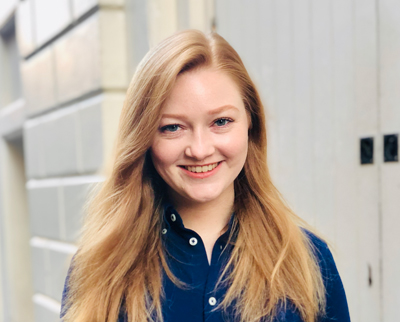
When I graduated from Selwyn in 2013, having studied Languages and Law, I naïvely thought my future was certain. I would undertake a professional training course; I would qualify as a lawyer; I would love it. Fast forward to my mid-twenties, though, and I was in chaos. I left law behind. I bounced between different jobs, trying to shut my eyes to the truth: I wanted to write fiction. Until that point, I’d successfully squashed my teenage aspirations to be an author and chosen the more ‘sensible’ path. After my parents’ divorce, I had become a practical child, and thought becoming a lawyer would get me the financial security that I’d lacked growing up.
But when I left the legal world, my future was muddied and unclear — I was unmoored, though not uninspired — and I began to imagine previously unimagined horizons. Perhaps now was the time to write that book I’d dreamed up walking along a street in Oxford? The one with the bloodthirsty unicorns…
Now, entering my thirties, I’m living a very different future from the one I imagined. Skandar and the Unicorn Thief, the first in a five-book fantasy series, is a Sunday Times and New York Times bestseller, sold in over 47 languages. And although I don’t have much reason to think about the finer points of tort law or the Spanish subjunctive, I truly believe my experience at Selwyn both inspired and prepared me for life as an author.
The importance of community
Throughout the Skandar series, there is a central idea that — although we are each made up of lots of different visible and invisible pieces — together we are always stronger. And I think that is one of the key aspects of Selwyn that has influenced both me as a person and my work as an author: the strength of a community built from people with all kinds of different backgrounds. My friends at Selwyn ranged from medics to classicists to musicians, and although I attended a private school on a full scholarship, the majority of them were from state schools. Some were from poorer single-parent families like mine, others had families spread out across the globe — but we were all Selwynites.
We discussed politics and art and literature and legal systems and history and film over Basics gin in Cripps Court, and there was a beauty in our differences that I have tried hard to capture in the diversity of the cast in Skandar. We didn’t all agree, but we learned so much from each other, and that is an experience that has shaped my approach to life, to learning and to writing. And it’s helped whilst working with my editorial team too. When your friends encourage you to argue your points, you have to get very good at taking criticism and feedback. Sometimes I wonder: if we’d all been the same, what on earth would we have talked about?
Conquering the fear
Recently, I arrived at an event on the schools’ tour for the launch of my paperback. It was the last day of a week of two events a day and different hotels every night across the North of England. I turned up at the host school and realised that this was a combined event with a further 13 schools. I would be speaking to 850 children that morning — the biggest audience I had ever encountered. In these kinds of situations, I draw on various adrenaline-filled experiences that Selwyn gave me the opportunity to be a part of.
Each year, the Selwyn lawyers took part in a mooting competition — and I remember that same kind of fear entering my bloodstream when I stood up to speak in front of Professor Spencer. I also have a memory of being against Oxford in the Blues fencing final at BUCS, giving myself a talking-to inside my helmet. “You can do this, Annabel”. And at graduation, I was asked to give an address in the Chapel, I remember clasping together my shaking hands as I tried to deliver something worth remembering. Those are the experiences I rely on to help me through when I get scared — whether it’s hundreds of children or tricky questions on live television.
Keeping perspective
My life is very busy now, perhaps even busier than it was when I was at Selwyn. It’s filled with writing the Skandar series, touring in the UK and abroad, attending book launches and going to publisher meetings. I learned from being at Selwyn, however, that it is important to keep everything in perspective and to take the time to see the beauty in the world. For me, it was singing in the chapel choir that helped. I particularly noticed its benefits during exam term: I felt myself connect with the world again as I sang Evensong in a Chapel that had seen many a stressed student over the decades. It helped ground me — and I still sing in a choir now. In fact, I solve most of my plot problems when I’m singing — during the rest it gives my brain, I almost always come up with the answer I need.
Synchronicity
I’ve found that it’s often those seemingly unconnected elements of our lives that come to aid us in moments of change. Much of what makes me me and has helped me write books I’m so proud of happened at Selwyn College, Cambridge.


